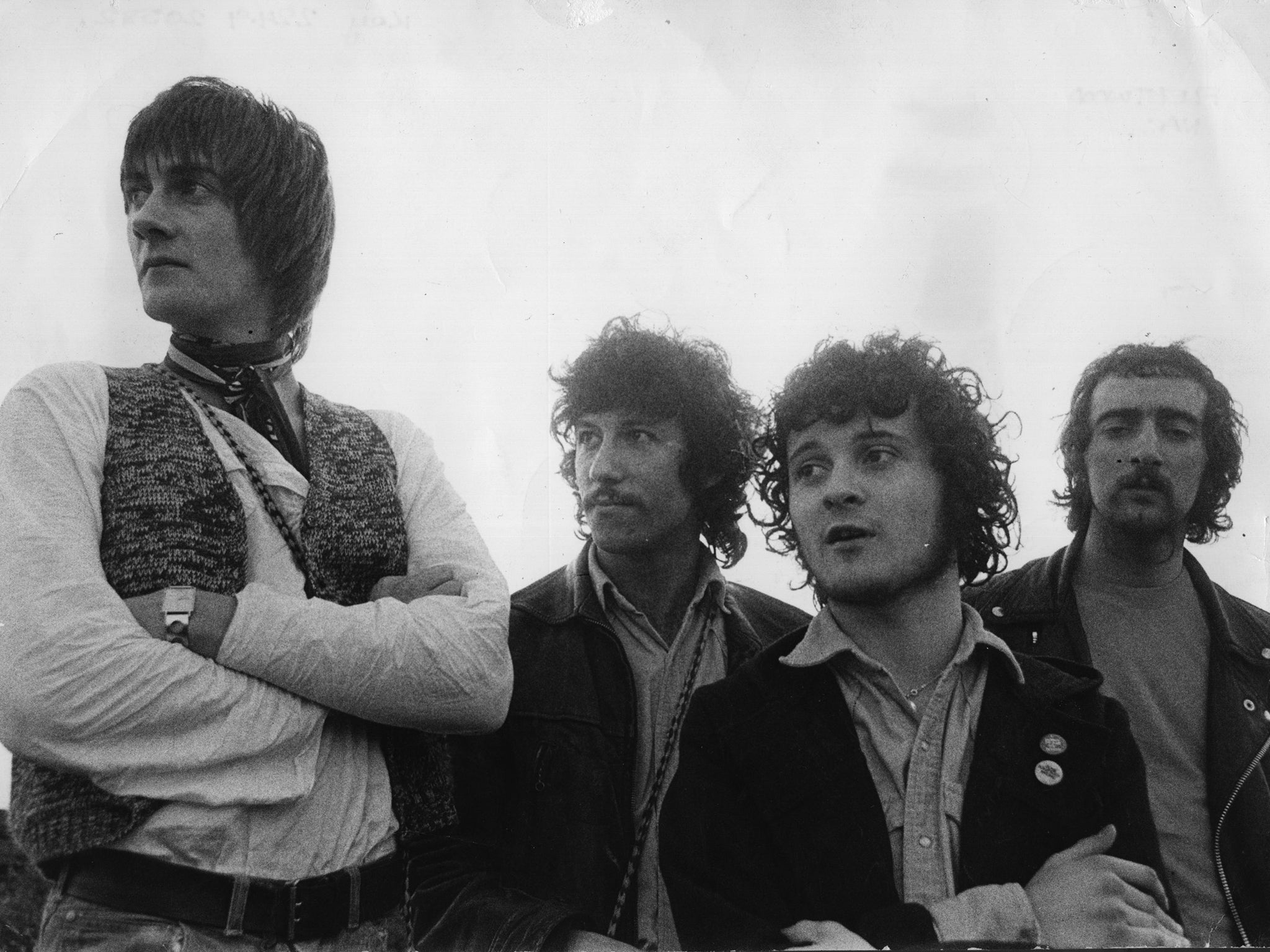Peter Green death: Fleetwood Mac co-founder, guitarist and songwriter dies aged 73
Influential guitarist was among eight Fleetwood Mac members to be inducted into the Rock & Roll Hall of Fame in 1998
Your support helps us to tell the story
From reproductive rights to climate change to Big Tech, The Independent is on the ground when the story is developing. Whether it's investigating the financials of Elon Musk's pro-Trump PAC or producing our latest documentary, 'The A Word', which shines a light on the American women fighting for reproductive rights, we know how important it is to parse out the facts from the messaging.
At such a critical moment in US history, we need reporters on the ground. Your donation allows us to keep sending journalists to speak to both sides of the story.
The Independent is trusted by Americans across the entire political spectrum. And unlike many other quality news outlets, we choose not to lock Americans out of our reporting and analysis with paywalls. We believe quality journalism should be available to everyone, paid for by those who can afford it.
Your support makes all the difference.Fleetwood Mac co-founder Peter Green has died at the age of 73.
The guitarist passed away “peacefully in his sleep”, his family’s lawyers said.
A statement from Swan Turton Solicitors read: “It is with great sadness that the family of Peter Green announce his death this weekend.
“A further statement will be provided in the coming days.”
Born in Bethnal Green in London, Green formed Fleetwood Mac in 1967 with guitarist Jeremy Spencer, bassist John McVie and drummer Mick Fleetwood - who described losing his former bandmate as "monumental".
"No one has ever stepped into the ranks of Fleetwood Mac without a reverence for Peter Green and his talent, and to the fact that music should shine bright and always be delivered with uncompromising passion", he added.
"Peter, I will miss you, but rest easy your music lives on. I thank you for asking me to be your drummer all those years ago. We did good, and trail blazed one hell of a musical road for so many to enjoy."
He received his first guitar from his older brother, Len, who had lost interest in learning how to play. One of Green’s musical heroes was The Shadows’ lead guitarist Hank Marvin, although his other influences were mostly blues greats, from BB King to Otis Rush.
In 1966, Green replaced Eric Clapton in John Mayall’s Bluesbreakers. Mayall told his producer, who was scandalised at losing Clapton: “He might not be better [than Clapton] now. But you wait… he’s going to be the best.”
Regarded as one of the greatest guitarists of all time, Green was the songwriter behind classic Fleetwood Mac hits including “Albatross”, “Black Magic Woman”, and “Oh Well”.
He left the band after a final show in 1970 amid disillusionment with the music industry and his struggles with mental health, which were exacerbated by his involvement with psychedelic drugs.
He was later diagnosed with schizophrenia and had electro-convulsive therapy in hospitals during the mid-Seventies. He was arrested in 1977 after threatening to shoot his accountant with a pump-action rifle.
Enjoy unlimited access to 100 million ad-free songs and podcasts with Amazon Music
Sign up now for a 4 month free trial (3 months for non-Prime members)
Enjoy unlimited access to 100 million ad-free songs and podcasts with Amazon Music
Sign up now for a 4 month free trial (3 months for non-Prime members)
“I guess I took one trip too many,” he told his biographer Martin Celmins in 1996.

Green returned to music in 1996 with Peter Green Splinter Group, performing mostly from his repertoire of classic blues.
He was one of the eight members of Fleetwood Mac – along with Fleetwood, McVie, Spencer, Stevie Nicks, Lindsey Buckingham, Christine McVie and Danny Kirwan – to be inducted into the Rock and Roll Hall of Fame in 1998.
In February, Fleetwood held a tribute concert to Green to honour his musical legacy. Special guests at the concert, which took place in London, included David Gilmour, Christine McVie, Pete Townshend, Bill Wyman, and Steven Tyler.
“I wanted people to know that I did not form this band — Peter Green did,” Fleetwood told Rolling Stone ahead of the event. “And I wanted to celebrate those early years of Fleetwood Mac, which started this massive ball that went down the road over the last 50 years.”
Fleetwood recalled the last time he had seen Green, and said he still played acoustic guitar, painted and went fishing.
“It’s no secret that he took a left turn and never came back, but he’s OK,” he said. “He also has really little or no ego at all, which is unbelievable. You want to go, ‘Do you realise what you did?’ ‘No, no. Yeah, I suppose so.’ He has no ego about what he did.”
“Peter, in his prime in the Sixties, was without equal,” said Mayall in Man of the World, the 2009 BBC documentary about Green. “He was a force to be reckoned with.”

Join our commenting forum
Join thought-provoking conversations, follow other Independent readers and see their replies
Comments